Do’s & Don’ts of Eating During Cancer Radiation Therapy
What should I be eating during cancer radiation therapy? This is one of the most asked questions by cancer patients undergoing radiotherapy. And it is an excellent question.
This post contains affiliate links. As an Amazon Associate, I earn from qualifying purchases.
Updated September 2, 2022
We all know about the connection between food and health. A cancer diagnosis is a severe shock. It triggers an intense desire to do all that we can to fight. So, of course, we ask about nutrition and cancer.
And good nutrition is key to fighting cancer. Scientists know that. Doctors know that. Dietitians, especially, know this. And you know it too. That is why you are here reading my article.
Most of us know, at least in a general sense, what eating healthy means. But can we use foods to help fight cancer? The answer is a resounding YES!
Nutrition is One Tool to Fight Cancer
Since my own cancer diagnosis in 2013, I have been reading scientific and medical journals to find foods that could help me. I wanted to fight my breast cancer with everything I had. And nutrition was one of the tools I could use.
I am not alone. Scientists also want to find out how foods play a role in cancer and cancer therapies.
There is a lot of information out there about foods and ways of eating that can help make cancer treatments more effective. Most of these studies are with chemotherapy. But if you look carefully, there are some studies on foods and radiation therapy too.
Radiation Therapy
Radiation treatments use a focused beam of high energy to kill cancer cells and shrink tumors. The most common type of radiotherapy is external to the body. Some cancers are treated with internal therapy when radioactive substances are injected into the tumor or area of the body.
Side Effects of Radiation Therapy
The most common side effect of radiation therapy is fatigue. Most cancer patients treated with radiation report some degree of tiredness, from mild to profound.
External radiation often causes skin problems and burns.
But some patients experience side effects that affect their appetite, digestion, or the ability to eat. It depends on where they are treated, dose of radiation and duration of treatments.
For example, patients receiving radiation to the pelvis or abdomen area may have diarrhea, nausea and bloating.
Patients who are irradiated in the neck or chest may experience dry mouth or difficulty swallowing.
Side Effects Affecting Appetite, Digestion or Ability to Eat
- nausea & vomiting
- diarrhea
- lack of taste
- gas & bloating
- sores in mouth or throat
- dry mouth
- difficult to swallow
- painful jaw
The focus of this post is not on radiation side effects. So, I haven’t listed all the possible side effects. I have only listed a few.
Talk to Your Oncology Team
If you experience any radiotherapy side effects, talk to your cancer care team. It is important for them to know what you are experiencing so that they can treat and help you best. Everyone experiences treatments differently. Some patients have worse side effects than others. So it is important for you to get the individual care you need.
Listen to Your Body
It is also important for you to listen to your body. It has a way of telling you what you need. Learn to recognize warning signs early so that side effects can be minimized.
Also, just because someone tells you that something helped them doesn’t mean that it will help you.
For example, you may have heard that eating tomatoes can help radiation work better at shrinking tumors. Yes, from the research, this seems to be true. But if you have mouth sores or trouble swallowing, the acid from those tomatoes can sting and make your grief much worse.
You need to do what is right for YOU.
So, pay attention and listen to what your body is telling you.
Now, lets talk about what you should be eating during cancer radiation therapy.
Stay Hydrated
Staying hydrated is the number one thing you can do to help yourself during radiation therapy. Dehydration can cause so many problems and make your suffering so much greater. Even if you don’t want to eat anything, make sure you get your fluids in.
Plain water is always best.
But I absolutely could not stand the taste of tap water when I was going through my radiation treatments. I had to flavor it with something. My favorite was fruit infused iced green tea. But there are many ways you can flavor water to make it more enjoyable.
Delicious Ways to Flavor Water
You can add fruit chunks or slices to water. Let them infuse for 3 – 4 hours in the fridge before drinking for maximum flavor. You can also use frozen fruit as ice cubes.
Try adding some of these to a glass of water:
- watermelon
- cucumber
- strawberries
- blueberries
- green tea
- raspberries
- cherries
- kiwi
- honeydew
What is a Radiation-Friendly Diet?
Cancer and it’s treatments are putting your body through hell right now. I felt much worse going through treatments than I did from my cancer itself.
Provide your body with the tools it needs to fight and heal. The best way to do this is to put good wholesome nutrients into it. Feed it right!
A Balanced Nutritious Whole Food Diet
A radiation-friendly diet is basically a balance of macro- and micro-nutrients. It is how we should all be eating, but with a few tweaks.
These tweaks are how you should be eating during cancer radiation therapy, but not necessarily forever.
Quality Proteins for Radiotherapy Patients
Radiation is breaking down and killing active cells, both cancer cells (yeah!) and some of the healthy cells in your body, unfortunately. We want the cancer cells to die and never repair themselves. But we want all the other non-cancerous cells to regenerate and heal. To do this those cells need you to eat high quality proteins.
A radiation-friendly diet will contain more protein than normal. Some studies suggest that radiation patients should eat high protein and low carbohydrate levels, similar to Keto and Atkins diets. High amounts of dietary proteins are linked to better radiation therapy outcomes.
The best protein in a radiation-friendly diet is fish. Salmon, mackerel, and tuna are some of the best proteins you can eat. Try to eat fish a couple of times a week, if you can.
But you shouldn’t eat fish every day. So, you will need other healthy protein choices.
Radiation-Friendly Healthy Proteins
- Fish
- Eggs
- Greek yogurt
- Beans
- Turkey
- Chicken
- Nuts
- Seeds
Good Carbohydrates for Radiotherapy Patients
High protein and low carbohydrate diets seem best for radiation patients. But that doesn’t mean you should eliminate carbs completely.
You will feel tired as your radiation treatments progress. Feeding your body good carbs can help with this.
The non-cancer cells in your body will also need good carbohydrates to grow and repair themselves. These healthy carbs are also packed full of micronutrients too. Your body will need lots of natural vitamins and minerals to heal. And these should come from whole foods, not supplements, as we will see a bit later in this article.
Radiation-Friendly Healthy Carbohydrates
- Vegetables
- Fruits
- Whole Grains
Healthy Fats for Radiotherapy Patients
Carbohydrates won’t give you energy for long. Yes, they will give you a fast boost, but your cells use and squirrel away these sugars so quickly that perk you feel will soon dissipate. Fats will give you the sustained energy you want.
Healthy fats are also important for cell membranes repair. The ‘skin’ of your cells is made up of fat molecules. So you need to replace this fat so that your cells can heal after a treatment.
Radiation-Friendly Healthy Fats
- Avocado
- Olive oil
- Nuts
- Seeds (especially Flaxseed)
- Fatty Fish
Intermittent Fasting and Radiation Therapy
When you are ready to eat, you need to make healthy choices. But it is also good to let your body rest and not have to process any foods for a while during radiation.
Some studies have looked at intermittent fasting in cancer patients. Overall, the results are promising. In general, some types of fasting promote autophagy that improve cancer survival rates.
If you don’t know what intermittent fasting and autophagy are, I wrote an article about them called: Fasting: How to Eat and Be Healthy.
Intermittent fasting is especially beneficial for those undergoing abdominal or pelvic radiation. Studies suggests that there may be less intestinal side effects in pancreatic cancer patients who fast before treatments.
So, don’t worry too much if you are just not up to eating on occasion. There were times during my treatments that I just didn’t feel like eating. And that can be okay.
But if you don’t feel like eating a lot and are losing weight, be sure to give your oncologist or dietitian a call. You also need to be able to maintain your weight. Losing weight right now, when you are going through treatments, isn’t necessarily a good thing.
Foods You Should Be Eating During Radiation Therapy
Eat Anti-Inflammatory Foods
Because radiation uses intense energy beams, it will cause some degree of inflammation. This inflammation may be localized to the area irradiated. Or it can be deeper and more extensive causing problems such as diarrhea and coughing, for example. So any foods that are considered anti-inflammatory can help.
But don’t extend this to grabbing that bottle of antioxidant supplement. There was a study in breast cancer patients that suggested to stay away from antioxidant supplements during radiation therapy. In this study, patients taking supplements had worse side effects and poor outcomes.
Some Foods That Decrease Inflammation:
- kale
- nuts
- fatty fish
- berries
- turmeric
- broccoli
- green tea
- olive oil
- cherries
Eat Energy Boosting Foods
Since fatigue is the number one side effect of radiation therapy, it would make sense to eat foods that boost your energy.
We talked about good carbohydrates and fats earlier. These are what you need to include in your diet to give you energy. However, there are some fats and carbs that are better at boosting us than others.
Energy Boosting Foods to Try
- banana
- egg
- apple
- dark chocolate
- quinoa
- berries
- nuts & seeds
Eat Skin Health Boosting Foods
It is very important that you protect your skin from further damage. This includes limiting your exposure to things that could worsen skin damage, such as hot showers and sunlight.
You can also help protect your skin with foods too. Be sure to include some of these nutritious foods to help your skin heal from the inside out.
Try Some of These Foods For Skin Health
- carrots
- spinach
- salmon
- sweet potato
- beans
- walnuts
- apricots
- bell peppers
- avocado
Eat Nutrient Rich Foods that Help Radiation Fight Cancer
There are other healthy foods that can help fight cancer. Some foods have properties that can increase the sensitivity of cancer cells to radiation. Include some of these in your daily meals.
Foods that Increase the Anti-Cancer Effects of Radiation
- cauliflower
- black pepper
- turnip
- butternut squash
- zucchini
- green onion
- pomegranate
- tomato
- arugula
- brussel sprouts
- pumpkin
- trout
- mushrooms
- whole grain rice
- flaxseed
- grapes
- watercress
- garlic
Foods You Should Avoid Eating During Radiation Therapy
Avoid Inflammatory Foods
Radiation is going to cause damage to healthy tissues. What you don’t want to do is create more inflammation in your body by eating the wrong foods.
There are some foods notorious for ramping up our inflammatory response. Refined sugars, bad fats, processed foods and alcohol are bad for triggering inflammation.
Avoid these Foods that Increase Inflammation
- white bread & pasta
- refined sugar
- fried foods
- soda & fruit juice
- red meat
- processed foods
- luncheon meats
- shortening & lard
- alcohol
Avoid Raw or Under-cooked Foods
Your immune system has been taking a beating during all your cancer treatments. Surgery, chemotherapy, immunotherapy, and radiation all work your immune system to the max. It is very busy right now trying to keep you alive. Don’t stress it out by eating raw or under-cooked foods right now.
Raw and undercooked foods may contain bacteria, such as e.coli, salmonella, and listeria. In a healthy person, the body may be able to fight these off. But your immune system isn’t healthy right now.
So, leave the sushi, unpasteurized milk products and rare meats for after you recover.
Wash any raw fruits and vegetables very well. Consider steaming your vegetables before eating. They don’t lose vitamins and minerals that quickly. And eat meats that are well-done.
Have a look at my article on cooking for more helpful information on cooking your food without losing valuable nutrients or creating more harmful chemicals.
Avoid Highly Acidic & Spicy Foods
Radiation to the pelvis and abdomen can cause intestinal damage. Radiotherapy to treat head, neck and chest area can cause throat damage. And some treatments can cause damage to the mouth, leaving patients with open sores. Acidic and spicy foods are not good to eat if you experience these types of side effects.
Tomatoes and citrus fruits are listed as a good foods that help fight cancer. Yes, they contain a powerhouse of nutrients and anti-oxidants. But they aren’t good for radiation patients who suffer from digestive issues and mouth pain.
Similarly, hot peppers contain capsaicin, a chemical that can help kill cancer cells. But only eat these if you are feeling well. Maybe leave them for a few weeks after your radiation treatments are done. My radiation side effects extended for weeks after treatments were completed.
If any foods bother you, don’t eat them.
Keep trying to find foods that you can eat, a little at a time.
Avoid Foods that Protect Cancer Cells from Radiation Therapy
Sometimes the foods we eat can be so healthy that they also protect cancer cells too. Of course, we do not want this. Ever! We are trying to kill these horrible, evil cells. We definitely don’t want to protect them from radiation.
Luckily, researchers are studying this too. They have found some foods that actually protect cancer cells from radiation effects. So, even though these foods can be healthy during normal times, it is best to avoid them during your radiation treatments.
Avoid these Foods that may Protect Cancer Cells from Radiation
- parsley
- sage
- ginger
- mint
- vitamins and other supplements
Other Articles that May Interest You:
Should you Eat Chickpeas When You Have Cancer?
Nightshade Vegetables: Friend or Foe in Fight against Cancer?
Can Pomegranate Juice Cure Cancer?
Discuss Side-Effects with Your Doctor
While I have talked about foods that are a part of a radiation-friendly diet, you may be experiencing side effects that make some of these foods difficult to eat. All of us patients experience different side effects. It will depend on the type of cancer, the location and dose of your radiation treatments and how many treatments you are getting.
Again, be sure to chat with your radiation oncology team. They are the experts in radiation therapy. They have likely seen every side effect that there is out there. If you are having problems with eating or digesting foods, tell them. They will have some suggestions to help you and can refer you to a dietitian for more help.
I wish you well!
For those of us with mild symptoms, I hope my article helped you make some healthy choices while you undergo your treatments. I am truly sorry you have to go through all this. But know that it is temporary. I wish you speedy healing and recovery.
You may also find my article on Walking Away the Side Effects of Cancer Radiation Therapy helpful.
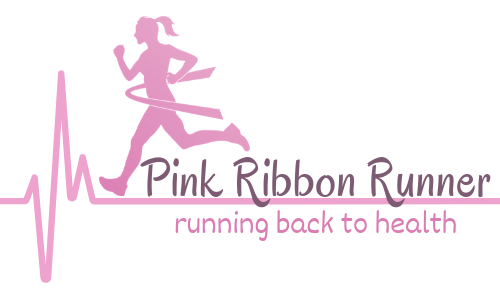




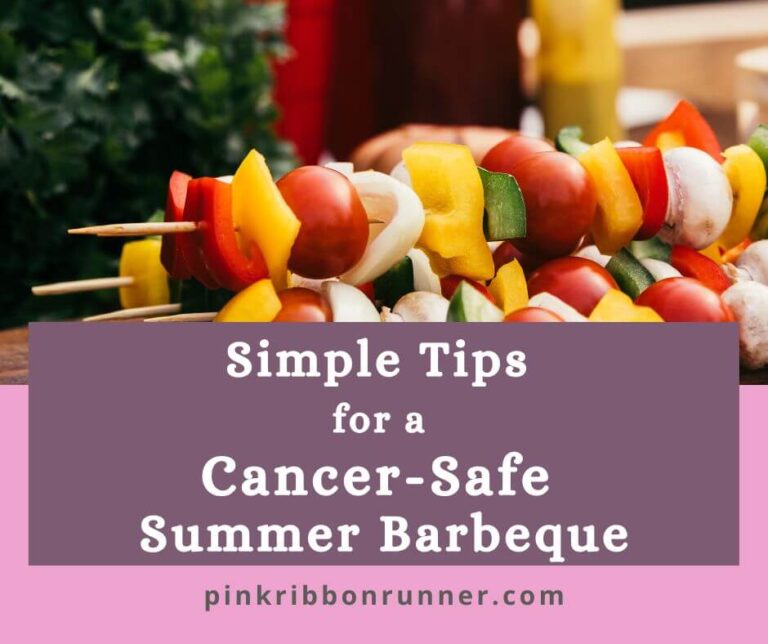
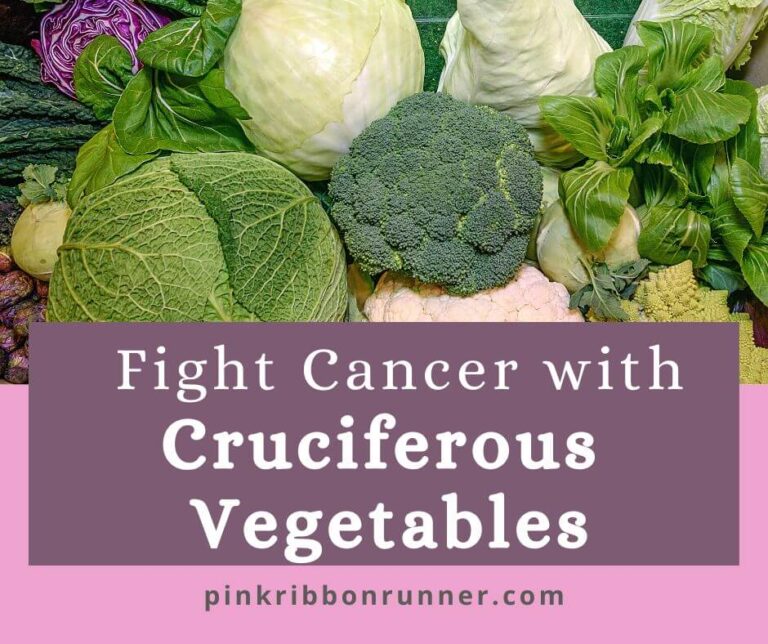

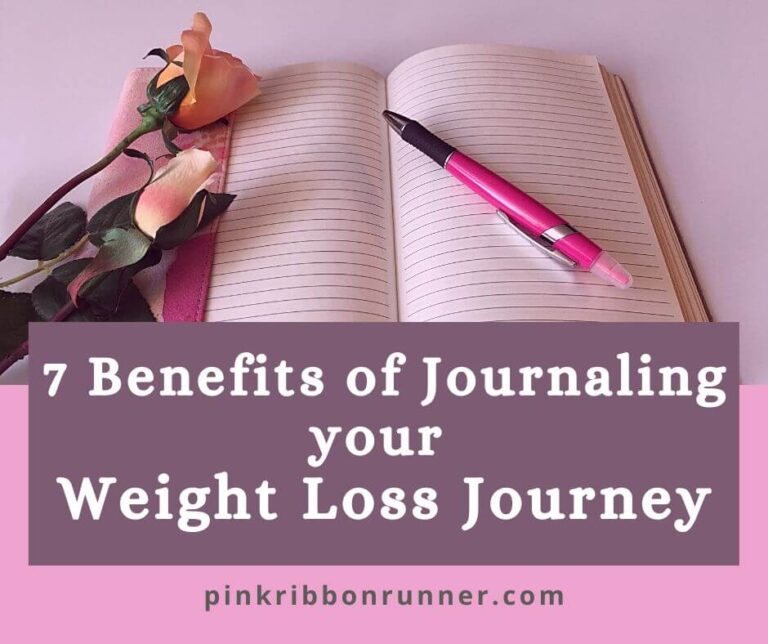
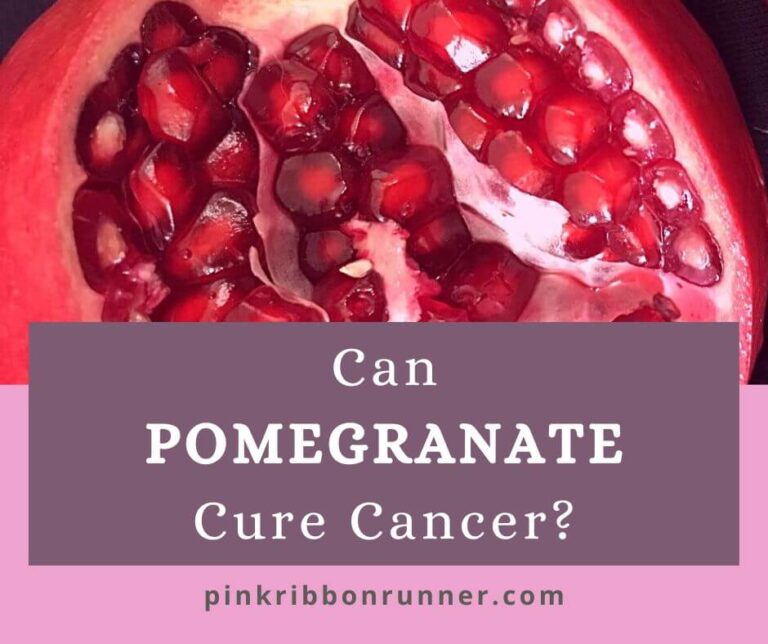
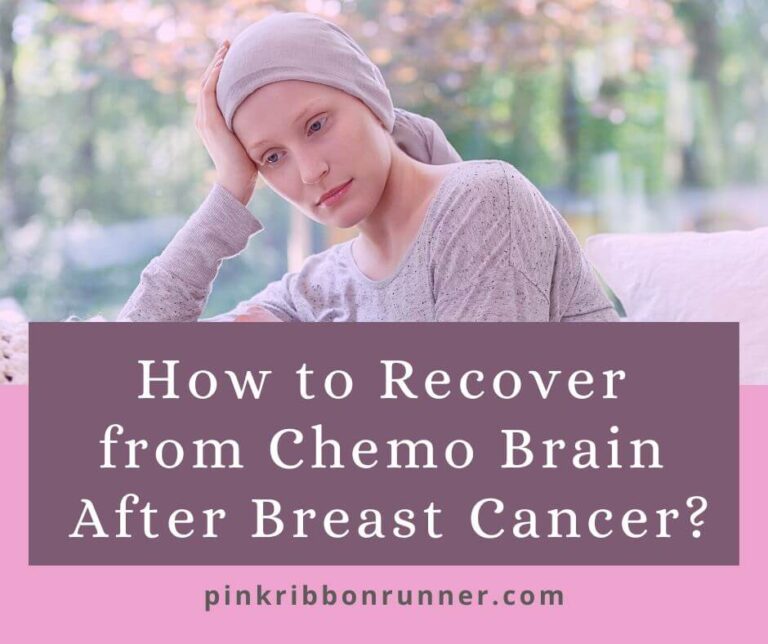
Thank you for this great information. I will start radiation sometime next month. I was diagnosed with TNBC in February 2023 & now I’m coming to the end of treatment with radiation. Praying for all in this journey for a quick recovery. 😊
Thank you for the info
You are very welcome. I hope you found it helpful.
My oncology dietician disagrees with your deeming tofu and chickpeas as cancer protective foods. He wanted to know where you got that information? If there’s data, he’ll back down. He’s encouraged me to keep them in my diet. If you could let me know where you found the info, I’d appreciate it.
Hello Katty. Thank you for letting me know about your oncology dieticians opinion on this matter. There is certainly no straightforward answer to this. There is research supporting that it is safe to eat soy and chickpeas, and may actually help fight cancer in some situations. But there are some reports suggesting that it is not safe to eat these foods. It is a controversial topic, even among dieticians. In general, these foods are deemed safe to eat for most cancer patients, in moderation. Individual circumstance do factor in, as discussed in this study. It depends on the type of cancer, overall health status, current diet and products (e.g. fermented soy vs unfermented soy) consumed. So, I am glad you are seeing a oncology dietician to get individual advice. And I am so glad you brought up this discussion with them. As for the radio-protective effects, there are early studies that demonstrate the protective effects. There is this study demonstrating protective effects on cell death and DNA damage, but at higher doses. So eating in low to moderate amounts may still be okay. There are several recent studies that suggest eating these foods may actually help radiation kill cancer cells, in some cancers, such as kidney and lung cancer, but perhaps not others. So, as you can see, we don’t have all the answers yet. Research continues. Because I was writing this post as general information, I decided to err on the side of caution and include soy and chickpeas in my “do not eat” list. But, individual consultation with a dietician is always encouraged. And I would encourage you to follow the advice of your dietician over some general information on the internet… my articles included. I just can’t write for every situation. I hope you find this answer helpful.
This information is very helpful. Thank you!
Thank you for this valuable information! I had breast cancer surgery a week ago and will begin radiation when I have healed sufficiently. This article goes in the arsenal I’m building to fight cancer!
I am sorry you have breast cancer, but I am glad you are building an arsenal to fight it. All my best for a smooth treatment process.
It’s interesting to know how the way you handle nutrition will impact your radiation therapy results in a good or bad way. My aunt was recently diagnosed with cancer and we are looking for places where she can get her radiation treatment. I will keep on looking for places, but I will definitely not forget to let her know the importance of her eating habits.
Thank you very much for this great article my daughter was just diagnosed with breast cancer and I feel totally lost in what kind d of food is good for her, I have look at hundreds of articles but so far yours is the BEST!!! Thanks again
Thank you for your kind words about my article. I am so sorry your daughter has breast cancer. I wish her all my best during her treatments. Stay as active as she can and eat well…it really helps.
This is such a great article!! So much helpful information!! Thank you for writing it!
I am glad you found it helpful. Thank you for your comment.
So interesting that chickpeas would protect cancer cells! I’ve never heard that before. I pretty much stick to a diet like this all the time, even though I don’t have cancer. It’s just healthy overall. Great tips and I’ll be sharing the list of no-no’s with a few friends who are going through radiation now.
Thanks for creating this list. I will be sharing it with a family member also going through radio.
You are very welcome. I wish them well. May they be one of the ones with minimal side effects!